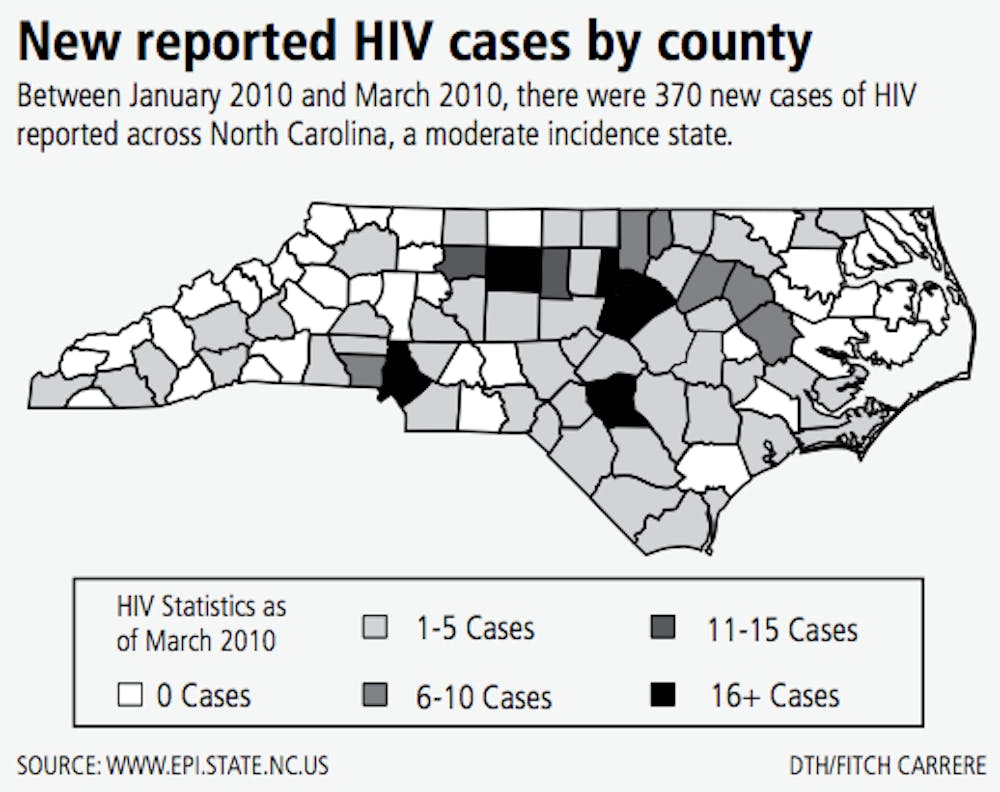A team of researchers from UNC are six years into a study on new approaches to early HIV detection and prevention. And with a $1.7 million grant from the U.S. Centers for Disease Control and Prevention, the study is set to expand.
The study will explore new testing methods for catching the infection earlier, determine cost-effectiveness and performance of new HIV detection tests and establish a social networking campaign to improve the process of partner notification.
Peter Leone, a professor in the UNC School of Medicine, is one of three co-principal investigators for the study.
“The main purpose of the study is to find ways to interrupt the spread of HIV,” Leone said.
When a person first contracts HIV is when they are most likely to spread it to their partner. As it takes time for the body to develop antibodies for any new virus, it is often difficult to detect infection immediately.
In the four- to eight-week period after infection and before detection of HIV antibodies, Leone said, the virus replicates rapidly, and there is a much higher probability of unknowingly transmitting the virus.
“The 4th generation assay allows you to both look for antibodies and for the virus itself,” Leone said, adding that the new method helps to speed up the diagnostic process.
“The four to eight weeks is reduced to seven to 14 days. That means we can pick up people we would have otherwise missed.”
Since many individuals at risk of contracting the virus are now meeting each other online, the study plans to use the Internet to educate such individuals and give them tools to notify each other of risks.



